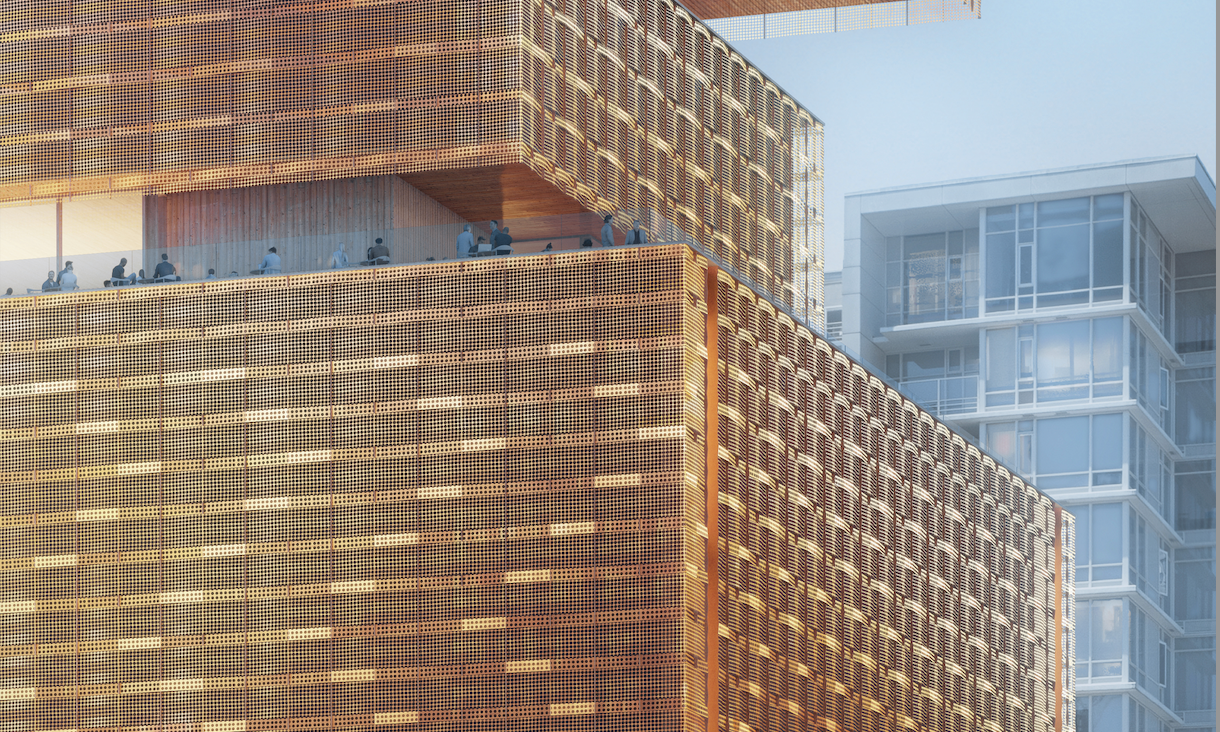Renderings of the Vancouver Art Gallery © Herzog & de Meuron
The Vancouver Art Gallery has received the largest single cash donation to an art museum in Canadian history. The C$100m ($80m) from collector Michael Audain's Audain Foundation will be used to construct a new gallery in Vancouver’s Downtown Peninsula, on ground once home to numerous Indigenous groups.
“The new gallery will create a contemporary, state of the art platform that allows us to really reflect the depth and diversity of the arts scene in Vancouver and Canada,” Anthony Kiendl, director of the gallery, tells The Art Newspaper. “It will give the next generation of artists the opportunity to be seen and heard.”
Larwill Park, today one of the last unbuilt city blocks in Vancouver, is also part of the ancestral and unceded territories of the xʷməθkʷəy̓əm (Musqueam), Sḵwx̱wú7mesh (Squamish), and səlilwətaɬ (Tsleil-Waututh) nations.
“The land we are on was traditionally occupied by these three nations,” says Kiendl. “The three nations lived together without borders, so it was integral for us to ensure there was representation from all three nations in the process of designing the building. We need the building to reflect the fact that the ground it is built on was an ancestral meeting point between them.”
As a result, Swiss architects Herzog & de Meuron and Vancouver architects Perkins & Will have embarked on a prolonged consultation process with Coast Salish artists who are representative of the three host Nations.
Local Indigenous artists Debra Sparrow, Chepximiya Siyam’ Janice George, Skwetsimeltxw Willard ‘Buddy’ Joseph and Angela George have been “engaged as art and design consultants” since March of this year”, Kiendl says.
The building itself will be created with wood and copper to the fore, materials that “hold cultural value in the material history of British Columbia”, the architects say in a statement, noting that wood formed the foundations of “the traditional longhouses of the Coast Salish people to early 20th Century city growth”.
The presence of copper in the design came as a direct result of the dialogue Herzog & de Meuron’s architects had with the Indigenous artists, they say.
“Objects made of copper were often elaborately embossed, bent and coloured, and carry a powerful message amongst many First Nations peoples of British Columbia,” the architects say.
Skwetsimeltxw artist Willard ‘Buddy’ Joseph says: “The rich exterior expression is much more than a design; it represents spiritual energy and protection.”
The proposed new building, situated seven blocks east of the current Gallery’s home on West Georgia Street, will include over 80,000 sq. ft of exhibition space, which is more than double the existing space. The building is expected to create an estimated 3,000 construction jobs and 1,000 permanent jobs in the tourism sector, the gallery claims.
“We’re incorporating a new programme into the facility, so the new gallery will have studios and accommodation which can be used by visiting artists,” says Kiendl. “It will Canada’s artists to develop and show their work at home first.”
The Audain Foundation gift follows a gift of C$40 million by the Chan Family Foundation and an initial investment of C$50 million by the Province of British Columbia. In addition, C$50 million has been pledged to date by individual donors and foundations. The art gallery will now seek to raise an additional C$160 million from the private and public sectors.
The Vancouver Art Gallery at the Chan Centre for the Visual Arts, the new gallery’s official name, will be located between Cambie and Beatty streets, with a front entrance on Georgia Street, in downtown Vancouver.

